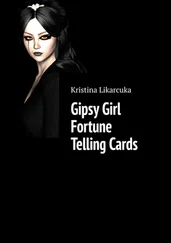The junkies are shy, but they’re shy as a group. They hang together, whispering to each other, like a tiny cult. The little girl who dyed my hair blue waves when I walk by. She’s probably my age, but, god, she looks eleven. Don’t know how that little body handles heroin.
She and her half-dozen or so friends move around the city in a herd. You see them sitting on the sidewalk or at parties in ragged apartments. In warm weather, they sleep in Dead Girl Park near Wayland Square or on the hill, piled up like puppies near a statue of Roger Williams we call “Jiving Man” ’cause he looks like he’s truckin’ off the edge of a cliff. Which is, coincidentally, what this little girl and her friends appear to be doing.
One day, she noticed that the blue in my hair was disappearing and told me to bring some Manic Panic and a scarf to the park. “Blue is where it’s at,” she said. “Don’t let it fade.” I did this ’cause I thought that was good advice. While she mixed the dye, her friends talked about heroin, their favorite subject. I was interested, because I had imagined all sorts of cold childhoods for them: desperate, dark life tunnels and at the end, a numb light. These kids didn’t seem to be “user-posers” with the disenfranchised affect; they looked fragile and real to me.
That day, the funny one—the only junkie with heft (“I’m a husky boy!”), the one who actually refers to the group as “the junkies” rather than just “my friends”—told me that the escape they’re looking for is from: boredom. They numb themselves out of boredom.
Geez.
While we talked, the little girl rubbed the blue goo into my hair, then expertly wrapped my blue, gooey head in the scarf and told me I could rinse it out whenever I felt like it. Because she wouldn’t accept the ten dollar bill I held out for her, I put them on the guest list for the show that night and now they come every time we play. Tonight, they look really happy; their whispering is making them laugh. They don’t seem bored.
Painters stand between the junkies and the psychos. They don’t move, they don’t jump or whisper or dance; they listen ferociously. I admire this.
I’m sitting on a folding chair backstage, dressed as a cardboard cowgirl. I wear a cardboard cowboy hat and a cardboard vest and swing my tiny tap shoes back and forth over the linoleum floor. I am riddled with terror.
My parents kneel on the floor in front of me.
“After the recital, we’ll go get ice cream,” says Crane, a tense smile on her face.
Dude fishes around in his pocket and pulls out a five dollar bill. “I’ll give you five bucks to go out there,” he says.
I shake my head. “I’m just not the type.”
Far from everyone, huddled in a corner of the club, are Betty and her priest. I’ve never asked her why she brings her priest to shows, but he’s always there. I know they’re very close. They’re sort of dating… spiritually. And they never miss a show. It’s funny, like every day is Bring Your Grandma and Her Priest to Work Day. Betty can’t even pronounce the name of the band; she says that “Throw-ing Mu-ses” is too many syllables. I told her “Bet-ty Hut-ton” has just as many, but she ignored me.
“We never call ourselves Throwing Muses , anyway,” I said. “We say Blowing Fuses or Spewing Mouses. ”
She didn’t think that was funny. “Krissy! That’s just as many syllables!”
Tonight, Betty’s hair is gold and she’s wearing her blue cowboy boots and a cowboy hat. Her priest is dressed as a priest. The two of them lean against the back wall of the club, talking. Betty has gigantic sunglasses on because she doesn’t like being “recognized.”
Now that I know her deep, weird need for stardom, I act like a tiny bodyguard when I’m with her, shielding her from invisible autograph hounds wherever we go, as I’m sure her priest is doing now. I think this has backfired a little. She now believes fans are everywhere: at school, at the beach, at Dunkin’ Donuts. I have to buy our coffees in the morning, she’s so scared to be seen. It’s strange; she’s no fading flower—she’s really fucking loud—but unusually fragile. She seems to love the idea of fans and hate the fans themselves. Or else she’s just afraid of them. Of course, there are no fans. This minor detail hasn’t dented her persona a bit. Betty is a movie star, through and through.
When we play gay bars, she and her priest look like a coupla nifty drag queens, but in this dismal rock club, they look small and lonely—out of place. It’s sad that this is their big Friday night out on the town. There are probably better things for an old lady and her priest to do on a Friday night.
But Betty thinks she has to come to all of our shows because I need help (sorta true). She says I’m a reluctant performer (also true) and that she can learn me up to sparkle (this will never happen). According to her, one more thing she and I have in common is music . This is wholly psychotic.
Betty grew up in the golden age of Hollywood, back when movies were Broadway on film, so her idea of music is “singing as entertainment,” and you can’t call what I do singing or entertainment. I hiss and yell and wail. Sometimes I make seagull noises, unfortunately. Music is something I have almost no control over. Like well-rehearsed Tourette’s.
When Betty sings, she sits at a piano and says lovely things about hope and broken hearts. I often sing phonetically, as if I don’t speak English. The words climb out of my throat and into my mouth. Then I have to spit them out.
Betty sings about starlight and champagne. I sing about dead rabbits and blow jobs. When I say playing music is owning violence, she says it’s owning love; when I say it’s math, she says it’s tap dancing; when I say it’s my gun, she says it’s her dance card.
I’ve also noticed that she sings notes that go with the chords in her songs. I have yet to do that. It sounds pretty when Betty does it; it sounds boring and goofy when I do it. So I make up new notes, ones that don’t belong anywhere near the chords I’m playing, and I sing those. People must think, It’s so nice of them to let that deaf girl sing .
I can’t imagine what I sound like to Betty. Not boring, I bet. Maybe goofy. I actually drew a Goofus and Gallant-style cartoon once called “Kristin and Betty” and passed it to her in class. I drew her as a sparkling Amazon sashaying across the stage and me as a little rat girl with spirals for eyes. I thought it was hilarious; she thought it was Art and hung it up in her house.
Later, it occurred to me that she has no idea who Goofus and Gallant are; she’s too old to have read Highlights magazine in her grammar school library when she was a kid. She was probably raised on Dick and Jane books. Maybe I’ll do a Dick and Jane cartoon for her: “See Betty tap dance. See Kristin spaz.”
Maybe not—she’d hang it on the wall. Betty’s crazy enthusiastic.
Which is part of why I love having her here. My stage fright melts away when I see Betty ’cause she’s the opposite of a rock club: she’s the antiscuzz. And getting felt up by frat guys doesn’t seem so bad when you have a secret superhero standing in the back of the room who could kick their asses. She totally could, too; she’s got big muscles and those guys were already wasted. I’d love to see Betty take on some drunk frat boys. She’d make them die.
Her priest is a really nice guy, too. A little tense maybe, but pretty normal for a priest, from what I hear. He smiles encouragingly and gives me the thumbs up whenever I so much as glance at him. Right now, he’s watching the opening band studiously.
Читать дальше












